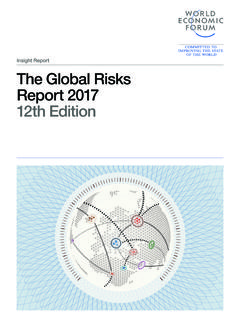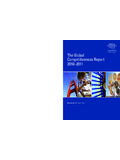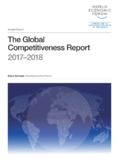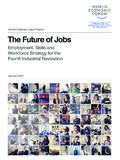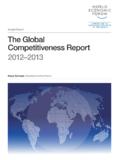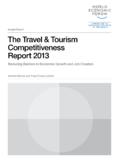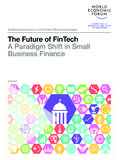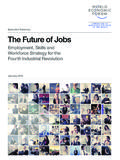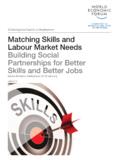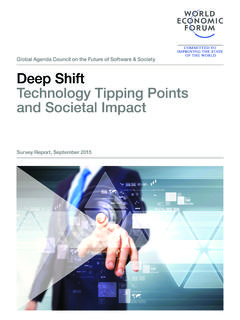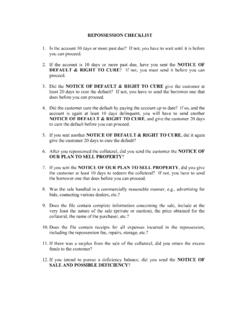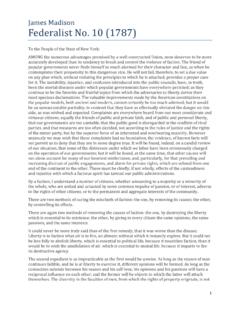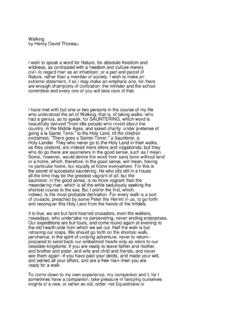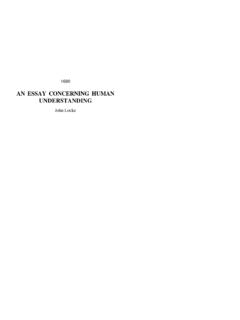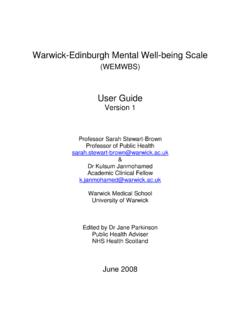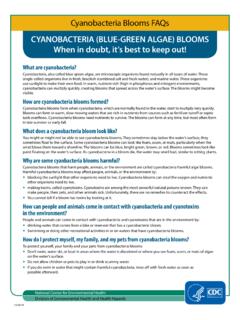Transcription of New Nature Economy Report II The Future Of Nature And …
1 New Nature Economy Report IIThe Future Of Nature And BusinessIn collaboration with AlphaBetaWorld Economic Forum91-93 route de la CapiteCH-1223 Cologny/GenevaSwitzerlandTel.: +41 (0)22 869 1212 Fax: +41 (0)22 786 2744 Email: 2020 World Economic Forum. All rights reserved. No part of this publication may be reproduced or transmitted in any form or by any means, including photocopying and recording, or by any information storage and retrieval Nature Economy Report II The Future Of Nature And BusinessThe Future of Nature and Business is published by the World Economic Forum in collaboration with AlphaBeta ( ). It is the second in a series of reports from the New Nature Economy project, the first being Nature Risk Rising that was published in January 2020.
2 About the New Nature Economy Report (NNER) series The series of New Nature Economy Reports (NNER) is being developed under the umbrella of the World Economic Forum s work on Nature , a platform for committed actors to join up ideas and efforts in the run-up to the UN Convention on Biological Diversity (CBD) COP15 and in support of the related Business for Nature agenda. The NNER series aims to make the business and economic case for action. The series will span three reports that focus on the following priorities: 1. Make the case for why Nature loss is a material risk to business and the Economy , including: a. The scale and urgency of the Nature crisis b. The potential consequences for society if the crisis remains unchecked c.
3 The need for business to mainstream Nature risk in corporate enterprise risk management2. Provide the insights needed to develop practical roadmaps that address the most important drivers of Nature loss, and build a Nature -positive Future , including:a. The most pressing business-related threats to Nature , which require urgent individual and collective action from business and other economic actors b. The key socio-economic transitions needed to tackle the Nature crisis; and the potential financial upside from concerted business actionc. The enforceable, supporting and coherent enabling mechanisms that will be needed to catalyse change at scale3. Scope the market and investment opportunities for Nature -based solutions to environmental and humanitarian challenges: a.
4 Research solutions across the biodiversity, climate mitigation, climate resilience and ocean agendas b. Assess their economic and Nature -building potentialc. Identify areas and approaches most relevant for private-sector finance About the World Economic Forum The World Economic Forum, committed to improving the state of the world, is the international organization for public-private cooperation. The Forum engages the foremost business, political and other leaders of society to shape global, regional and industry agendas. 4 New Nature Economy Report II The Future Of Nature And BusinessForewordDominic WaughrayManaging Director, Managing Board, World Economic ForumAkanksha KhatriHead of Nature Action Agenda, World Economic ForumThe Great Acceleration of the world Economy over the last 70 years has brought an unprecedented increase in output and human welfare.
5 Human population grew from billion in 1950 to close to 8 billion today. At the same time, the average person has become times richer and lives 25 years longer than in 1950. Since 1990, the number of people living on less than $ a day has reduced by one-half, and roughly 700 million more people entered the mushrooming global middle classes. Yet, the Great Acceleration carried important costs, among which were its profound impacts on natural systems, including the degradation and loss of whole species and critical ecosystems. These impacts and the risks they bring to our economic system and welfare are set out in the first Report of this series, Nature Risks Rising, released in January 2020. COVID-19 has brought the Great Acceleration to a screeching halt.
6 Hundreds of thousands of people have died and entire sectors of the Economy have stopped operating. All because a novel zoonotic disease, possibly triggered by human disturbance of Nature , became a pandemic. As of June 2020, governments and international organizations have invested close to $9 trillion to try to prevent the most immediate human and economic impacts. But despite these efforts, the global Economy is expected to contract by 3% in 2020, affecting the jobs and livelihoods of millions of people. Nature -related risks have precipitated a Great Deceleration and potentially a structural economic crisis. The spread of a deadly zoonotic virus with no immediate cure was a known risk, of which environmental scientists had warned.
7 The same scientists have warned us against returning to business as usual in light of the looming Nature crisis. Nature loss brings a whole new set of risks, including potentially deadlier pandemics; we are sleepwalking into a catastrophe if we continue to ignore this reality. To pursue the same economic strategy that has resulted in this situation while hoping for a different outcome, would be deeply questionable. A new Future for Nature and humans is needed and one that can help accelerate the Great Reset that the world s Economy and society require. The Future of Nature and Business Report lays out in practical terms what needs to be done to achieve this new Future , by laying out a pragmatic framework for the industry to lead the transition towards a Nature -positive Economy .
8 This is a path that can provide a win-win for Nature , people and business. It can unlock an estimated $10 trillion of business opportunities by transforming the three economic systems that are responsible for almost 80% of Nature a Great Reset, however, needs to acknowledge the new context in which we live. To be successful, this path will need to gain the confidence and the support of citizens and governments, by demonstrating its focus on inclusive growth and improved jobs and livelihoods. Its ability to create 395 million jobs in 2030 while pivoting the global Economy to be Nature -positive is perhaps the single most important takeaway for decision-makers. It won t be easy or straightforward, but a failure to act will be even more painful.
9 We need to commit to this path and be willing to work together. The World Economic Forum, as the international organization for public-private cooperation, pledges to help public, private and civil society stakeholders reset their relationship with Nature as part of the Great Reset agenda in a way that will be Nature -positive, value-creating and Nature Economy Report II The Future Of Nature And BusinessPreface by the Co-chairs of the Champions for Nature communityThe economic, humanitarian and social fall-out from the COVID-19 pandemic crisis is far more severe than than the 2008-09 global financial crisis. Even with great uncertainty, IMF projects the global Economy to contract by 3% in 2020. This shock will mostly affect the poor, informal and marginalized sections of society everywhere.
10 As governments around the world are creating stimulus packages and reassigning budgets to fight this unprecedented crisis, it is imperative to also recognize this opportunity to reset humanity s relationship with Nature . This crisis has reminded us that human and planetary well-being are intertwined. Nature must be at the heart of all our efforts and economic incentives aligned to promote the protection of biodiversity and integrate Nature recovery goals into our business and financial decisions. The human footprint on the planet has had an immense impact on the natural world. Unsustainable consumption and production patterns have come at the cost of healthy ecosystems, biodiversity, and human is the foundation of economic growth.
